#you are there
Text
Highwayman According to De's Characters
I was a highwayman

Along the coach roads I did ride
With sword and pistol by my side
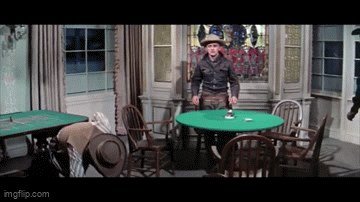
Many a young maid lost her baubles to my trade
Many a soldier shed his lifeblood on my blade
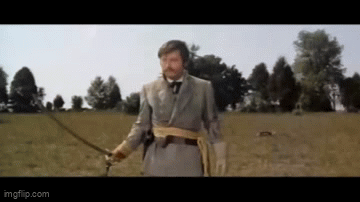
The bastards hung me in the spring of '25
But I am still alive

I was a sailor

I was born upon the tide
With the sea I did abide

I sailed a schooner 'round the Horn to Mexico
I went aloft to furl the mainsail in a blow
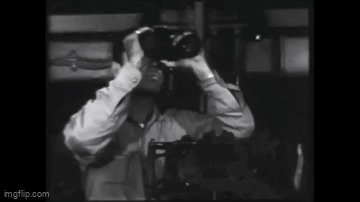
And when the yards broke off they said that I got killed
But I am living still
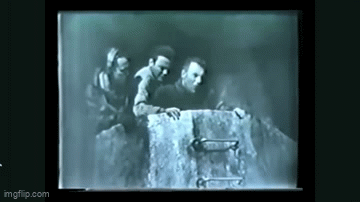
I was a dam builder
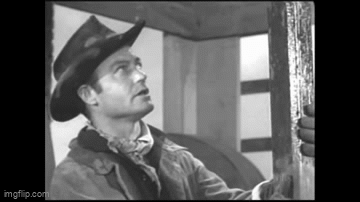
Across the river deep and wide
Where steel and water did collide

A place called Boulder on the wild Colorado
I slipped and fell into the wet concrete below
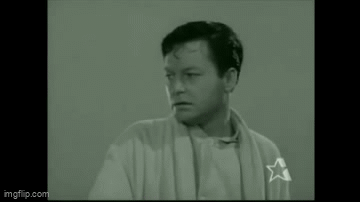
They buried me in that great tomb that knows no sound
But I am still around
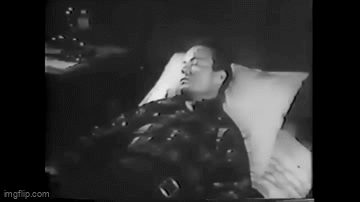
I'll always be around, and around and around
And around and around and around and around
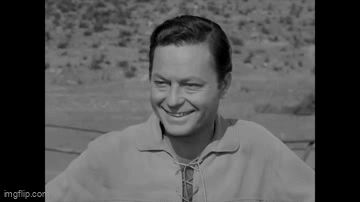
I'll fly a starship

Across the Universe divide
And when I reach the other side
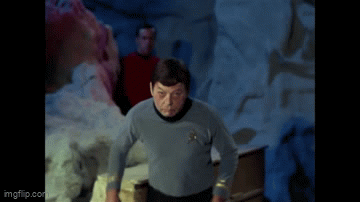
I'll find a place to rest my spirit if I can
Perhaps I may become a highwayman again
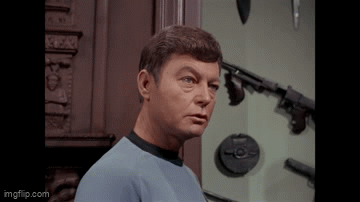
Or I may simply be a single drop of rain
But I will remain
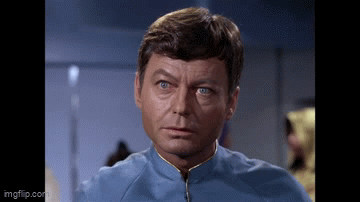
And I'll come back again, and again
And again and again and again and again
And again

#deforest kelley#the world according to de's characters#the highwayman#the highwaymen#mackenzies raiders#warlock#raintree county#bat masterson#time to kill#navy log#silent service#studio one#you are there#the virginian#the lone wolf#frozen escape#death valley days#search for spock#city on the edge of forever#a piece of the action#journey to babel#the undiscovered country
45 notes
·
View notes
Text



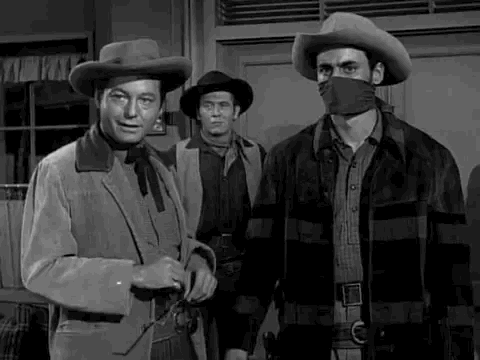
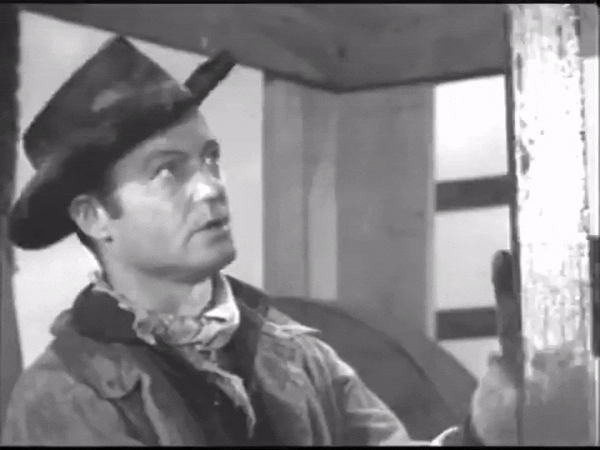


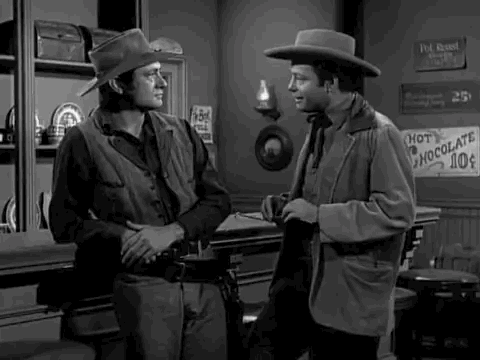
DeForest Kelley Appreciation Post, Walk Softly/Carry Big Stick Edition 🦥
#dunno what else to call it?#lol#he’s playing with a piece of wood in each of these#but i didn’t want to call it that#😂#western!de#deforest kelley#dk gifsets#l to r top to bottom#the dakotas#zane grey theatre#tension at table rock#rawhide#you are there#you are there again#zane grey theatre again#rawhide again#honestly i know he’s so bad in that second to last one#but#the way he pulls out her chair#starting to remember why i wrote a fic about that SOB#dk compilations
208 notes
·
View notes
Photo

Any household equipped to receive the television service of the British Broadcasting Corporation in 1954 would almost certainly have done so on a “table-top” set not unlike the moderately priced and now iconic “TV-22,” which featured a circular 9-inch Mullard “television picture tube” capable of displaying the 405 lines its electron beam had to travel to draw the “high definition” images coming from London’s Alexandra Palace or the Birmingham transmitter in Sutton Coldfield. First manufactured in 1950 by Bush Radio, then under the umbrella of the Rank Corporation, the Bakelite-clad receiver came with connections for a dipole aerial and AC mains power, and no option at all to change the channel. What today would be considered a serious limitation was in fact a pragmatic decision as long as the country's airwaves remained limited to a single channel. (The set would have been ready for three additional channels which were proposed but never implemented.)
Growing audiences and an expanding schedule forced the new medium to create new content if it intended to fulfil its mission as a public broadcaster to “inform, educate, and entertain.” While the BBC's radio service had famously been on the air since 1922 and earned its merits during the war, television remained for a long time an experimental technology of questionable utility. Early programming therefore relied heavily on the spoken word and the conventions of live theatre, including the singular, and ephemeral, nature of each performance: very little was pre-recorded (on film), and once a programme was broadcast it ceased to exist. Much of the BBC's live programming and even material recorded on tape is now lost; what we do have from the era before and just after the introduction of magnetic tape in 1956 was routinely filmed off the television screen in a process known as kinescoping. Preservation of its output did not rank among the BBC's priorities; recording everything on film would have required vast resources dwarfing the convenience of "canned" content: repeat showings on the BBC often meant repeat performances – bringing the original cast and crew back to the studio was, after all, a well-rehearsed operation and more efficient than any existing technology. Similar traditional arrangements continued well beyond the arrival of effective technical solutions.
The lack of definition, in every sense, at first prevented the new medium from being recognized as such not only by those who worked in it but also the sceptical consumers into whose living rooms the images would be beamed. The privacy of the viewing experience would prove decisive: like its theatrical rival, television was visual, and it was live. With radio it shared the spontaneity of the live broadcast and a large audience that would not need to come together in a single room. Film could offer none of the above, certainly not in combination, but where television (and radio) opted for intimacy on the small screen, film went big and promoted the communal experience – a very basic, fundamental division which remained in place for more than half a century and is only now being challenged by the most recent innovations in streaming and subscription services.
In 1954 the BBC, as the sole operator of the new technology in the United Kingdom, looked to other pioneers abroad for suitable formats with which to fill their expanding schedules. In the United States, commercial television was in full swing by the early 1950s, with major broadcasters such as NBC and CBS competing for viewers and, more importantly, advertising partners – sponsors in the terminology of the scheme developed for radio that had businesses pay for the right to name an entire programme (today's wealth of "archival" recordings from the era is a direct result of the legal requirement to provide proof to the customers that their money was well-spent). Here, too, tried and tested radio content was being adapted for television and, in the process, began to take on hybrid features. One promising concept on the CBS network that appealed to the BBC decision makers was a former radio show turned televisual experiment: You Are There fused (fictitious) contemporary radio reportage with historical re-enactments – easily done on radio but more challenging – and more rewarding – as a live spectacle for audiences to see. Not quite ready, in technical terms, to rival the offerings of the film industry but arguably an alternative to a night out at the theatre, the "night in" promised to become an event in its own right.
You Are There set out to transport the viewer back in time and to bring them face to face with historical figures, who are moreover prepared to pause and be interviewed by modern-day (all-male, often real-life) TV news correspondents. The deliberate anachronism of the programme, examining a fictionalized version of history with the most modern tools available and presenting it to the viewer in the privacy of his own living room was the message and the medium rolled into one: the historical subject under scrutiny was by no means chosen at random or pre-determined by the American creators; licensees around the world dramatized historical events from their own national perspectives. Only seven episodes were produced for the BBC in 1954, none of which exist today. Press reviews and summaries confirm the use of exterior location sequences pre-recorded on film to supplement the live performances in the Alexandra Palace studio, but we can only speculate on the precise treatment of each subject.
The series opened, appropriately, with the Charge of the Light Brigade in the year of its centenary, followed by the trials (and tribulations) of Mary Queen of Scots, Charles I, Captain Dreyfus, and Julius Caesar. Joining this eminent circle were, somewhat less obviously, the instigators of a minor mutiny, as well as a major figure, arguably, of the Anglo-Irish political struggle whose historical – and literary - significance has only grown since 1954. The Fall of Charles Stuart Parnell has inspired generations of writers engaged in the fabrication of alternate histories. The enigma of his personality, and the complex set of circumstances surrounding the events of 1890 continue to be explored in imaginary what if variations. You Are There, by contrast, portrays a moment in time that must contain a myriad of possibilities. [Part 1 of 2]
#Patrick McGoohan#Helen Shingler#mother of Murray Head and Anthony Head amazingly#You Are There#The Fall of Parnell#would have been closer to audiences in 1954#than the TV programme is to us today#incredible to think that some 60 years later#participants would still have been alive#even though key protagonists had dided by 1937#when the first Hollywood romance was crafted#starring Clark Gable and Myrna Loy#Ireland of course continued to struggle right through#the first half of the 20th century and beyond#with the unfinished business of Parnell's now#heroic failure#though the BBCäs perspective may have been more detached and compressed#into a 30-minute lesson about a charismatic leader who did NOT change British history#when the country was experiencing victory and rationing and had not yet reinvented itself#where conformity was indeed the norm and individuality abnormal unless it came off as eccentricity#and modernity as technological advance#which it did in the case of television before morality caught up#within one year commerical television was on the air and the tv set obsolete#if one wanted ITV#and people did#with consequences for all of us#what a waffle so sorry
21 notes
·
View notes
Text




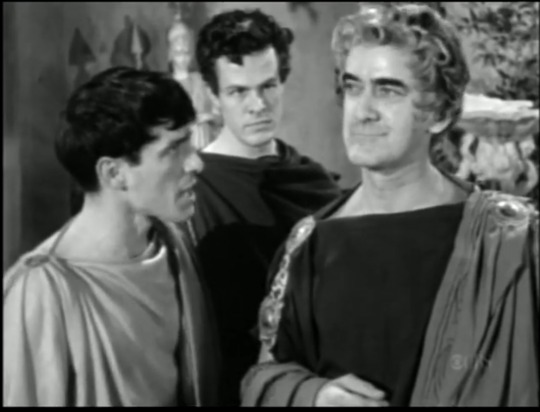
A very young Robert Culp in “You Are There: The Death of Socrates (399 B.C.)” (1953)
3 notes
·
View notes
Photo

7:53 AM EDT April 15, 2023:
Mono - "Are You There?"
From the album You Are There
(March 15, 2006)
Last song scrobbled from iTunes at Last.fm
File under: Question Songs
2 notes
·
View notes
Text
Follow The Love
7 notes
·
View notes
Text
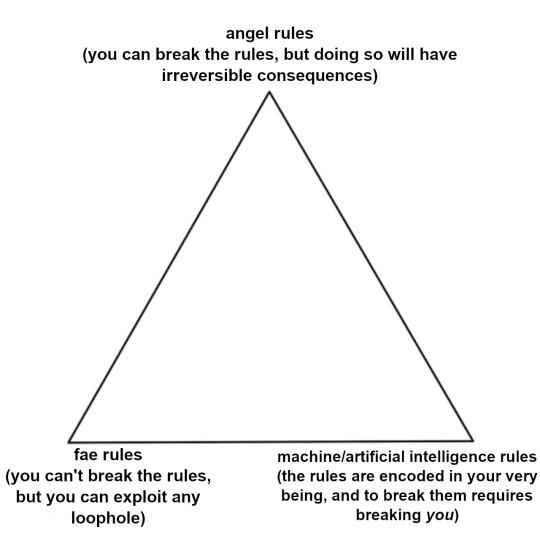
been thinking about fantasy/scifi rule systems and free will
158K notes
·
View notes
Text
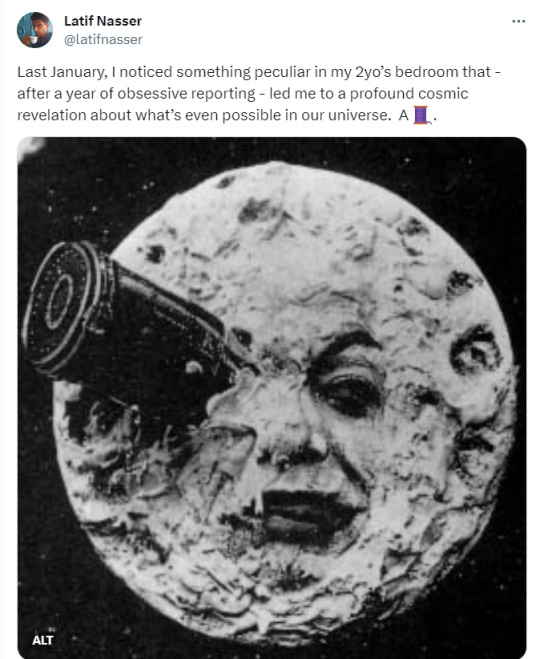
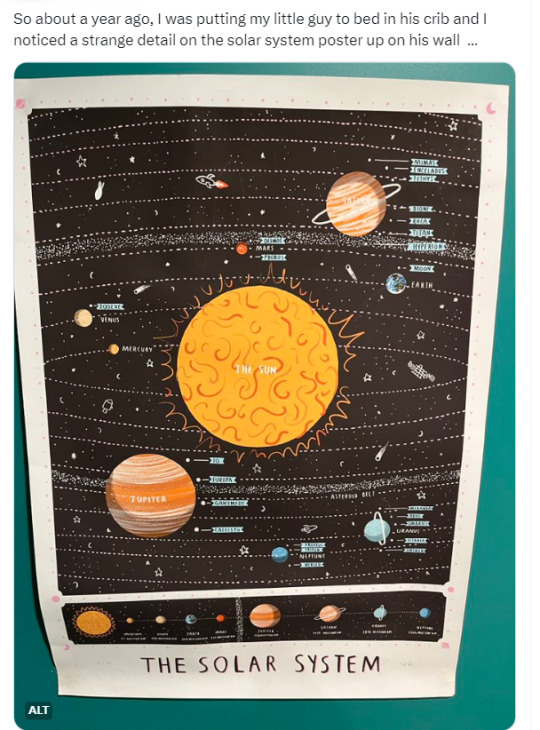
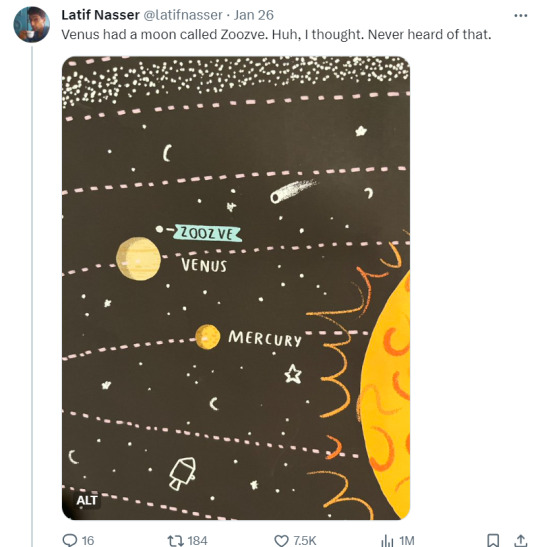
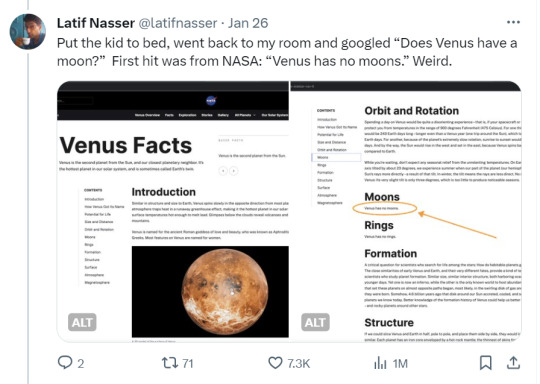
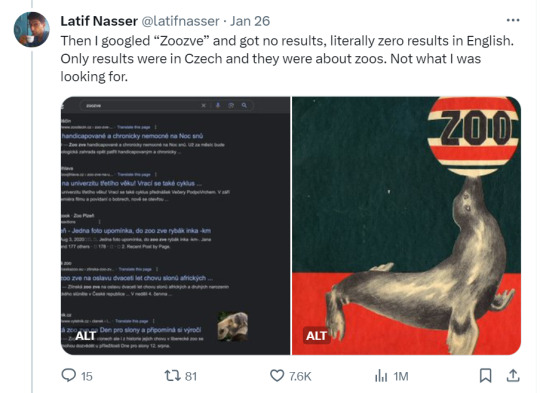
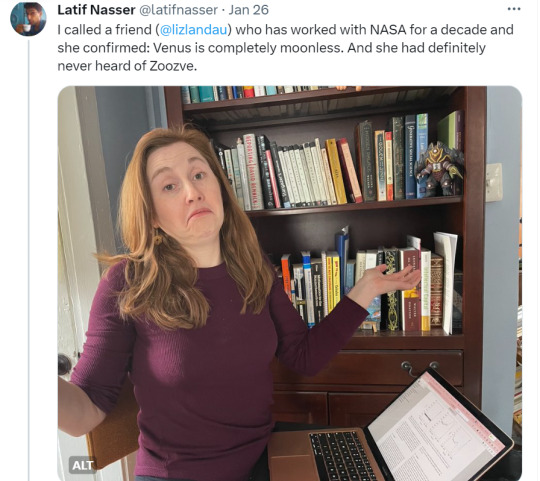
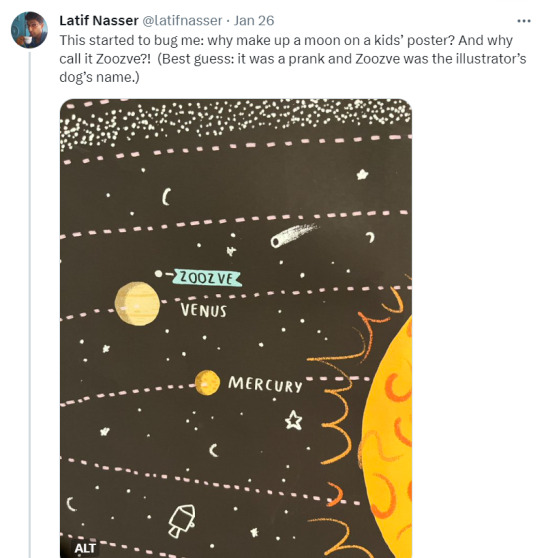
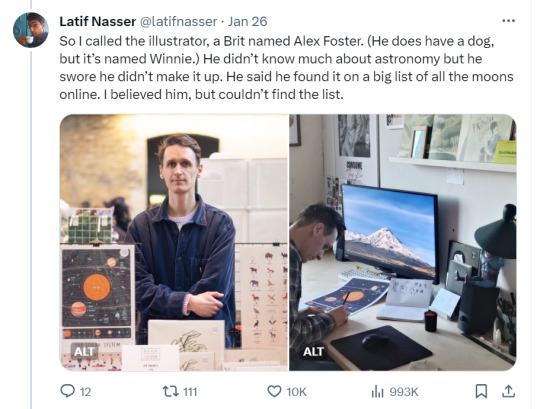

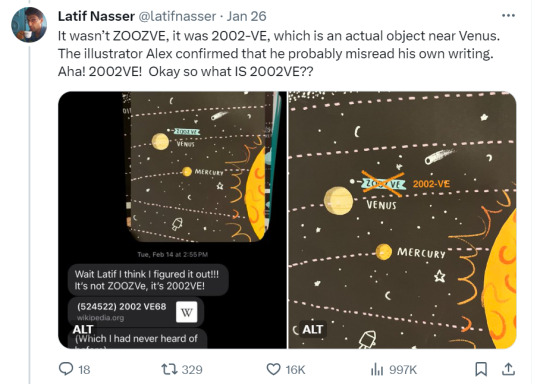

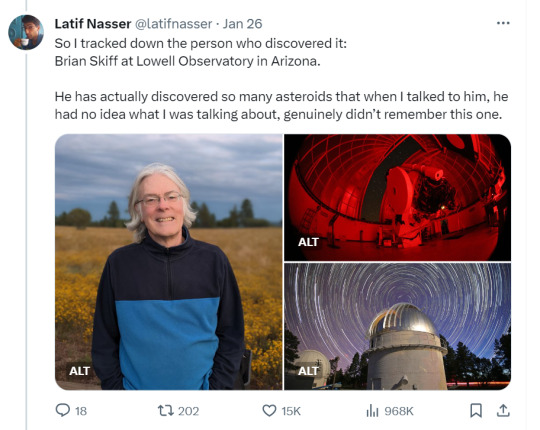
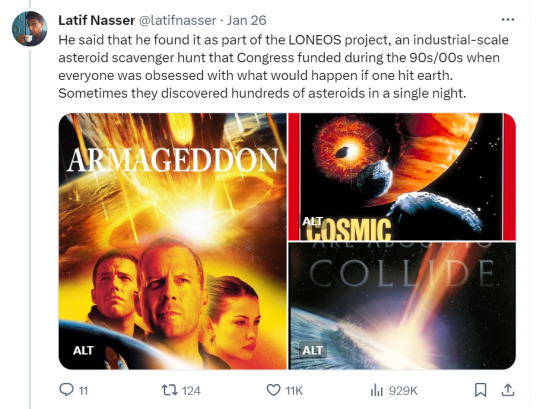
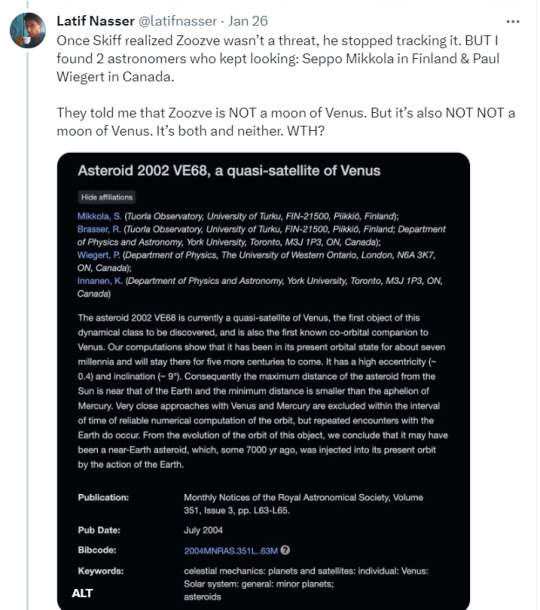
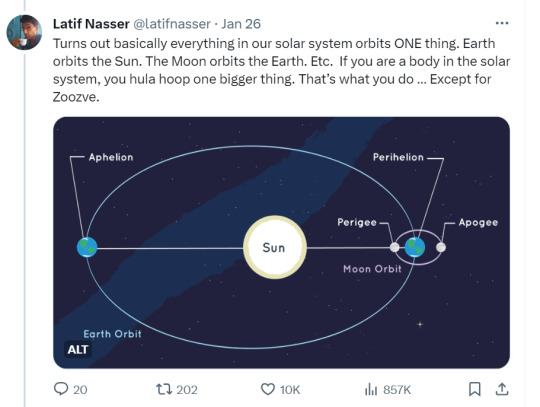
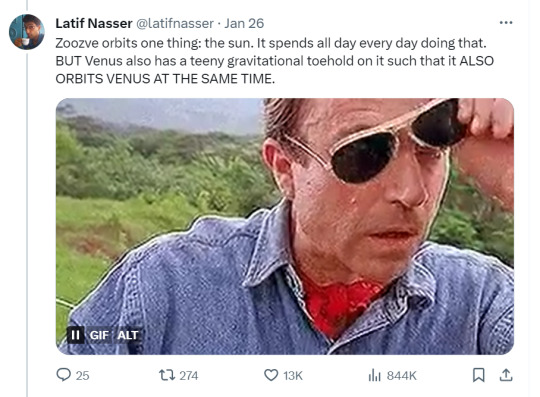
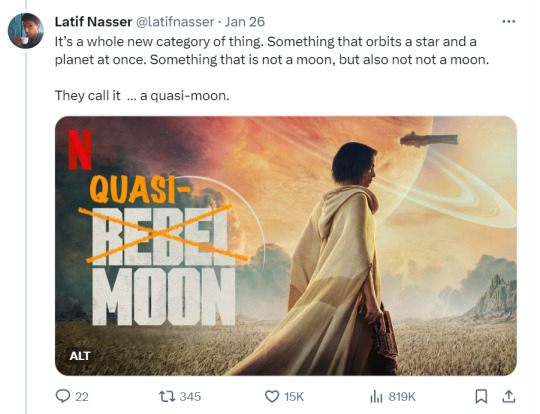
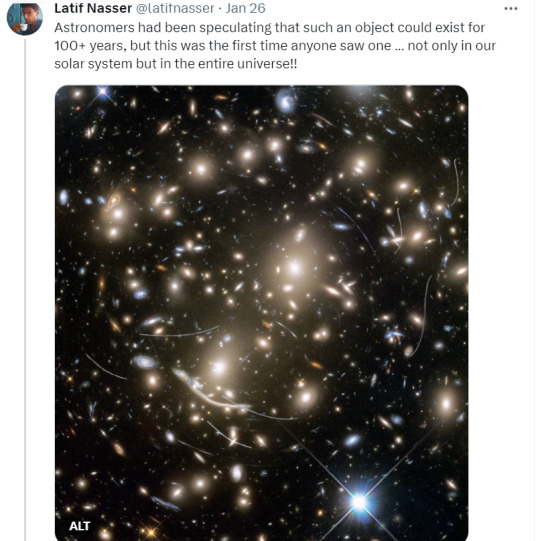


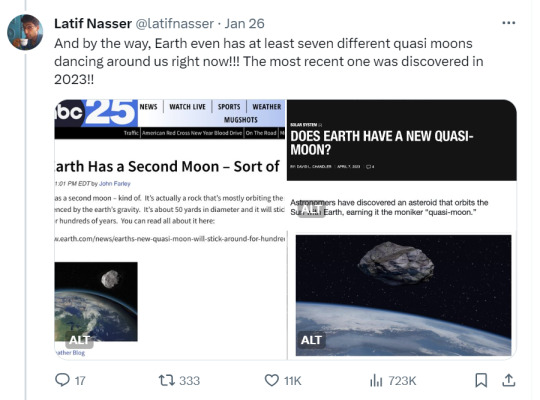

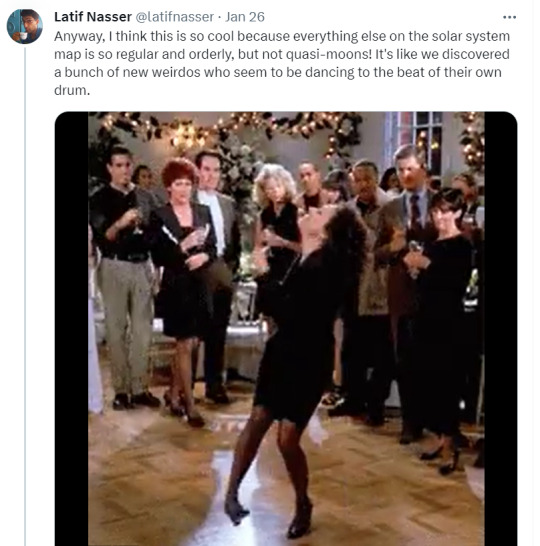
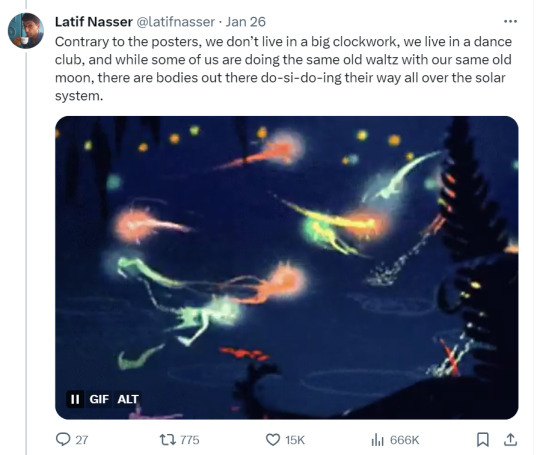
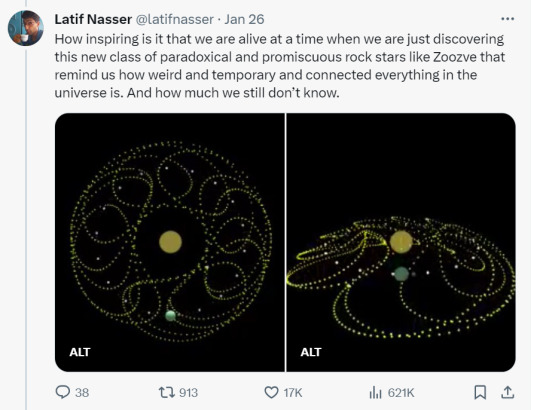
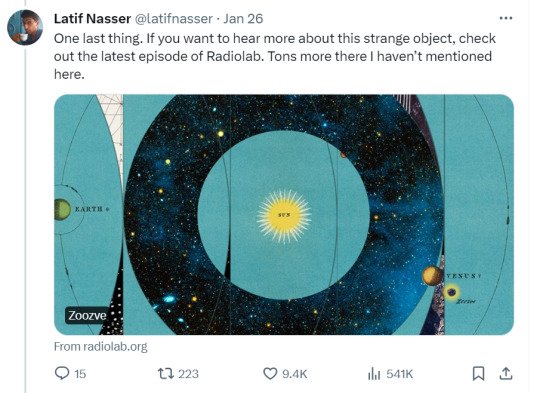
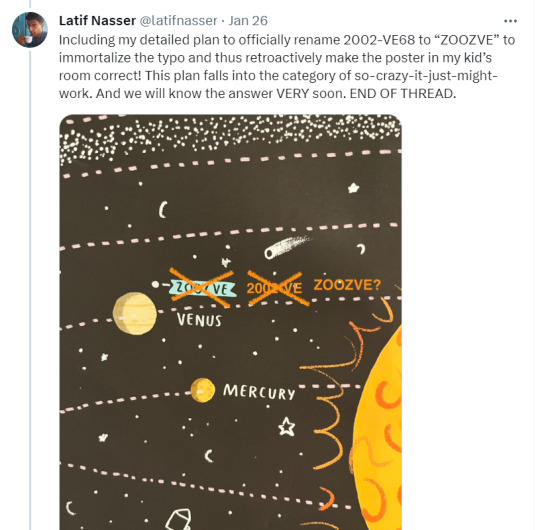
Zoozve, my beloved
#i cannot tell you how much this made me smile just bc it's so full of love#moon#venus#zoozve#long post#sorry about that it's very long but it's very entertaining i hope you enjoy this lil zoozve gem haha#astronomy#astrophysics#space
118K notes
·
View notes
Text

source
#you are strong#you can do this#art#aesthetics#fox#indie#grunge#alternative#aesthetic#space#universo#universe#vintage#stars
217K notes
·
View notes
Text
ENTRY LEVEL MEANS NO EXPERIENCE. IT MEANS NO PORTFOLIO OF RELEVANT SAMPLES. ENTRY LEVEL IS ENTRY LEVEL
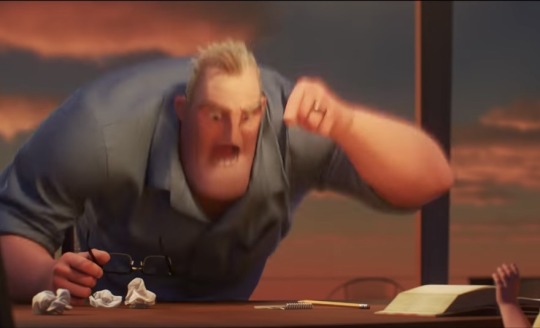
#HOW AM I SUPPOSED TO GAIN EXPERIENCE YOU STUPID FUCKS#I HATE THIS I HATE JOB HUNTING THIS SYSTEM IS ABSOLUTE DOG SHIT
146K notes
·
View notes
Text
The Cowboy and the Poet According to De's Characters
He was an old time cowboy Don't you understand
His eyes were sharp as razor blades His face was leather tanned

His toes were pointed inward From a hangin' on a horse
He was an old philosopher of course
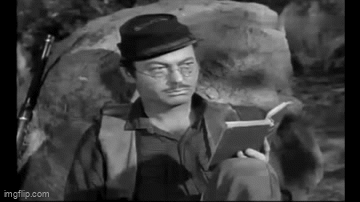
He was so thin I swear You could have used him for a whip
He had to drink a beer To keep his breeches on his hips
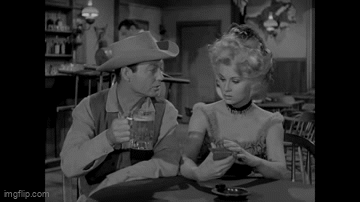
I knew I had to ask him About the mysteries of life
He spat between his boots And he replied
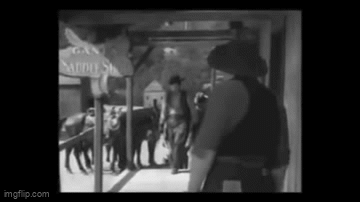
"It's faster horses
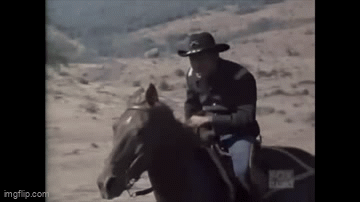
Younger women
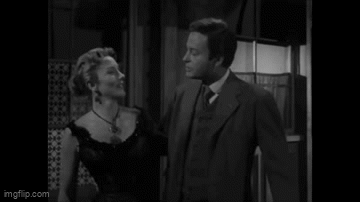
Older whiskey

More money
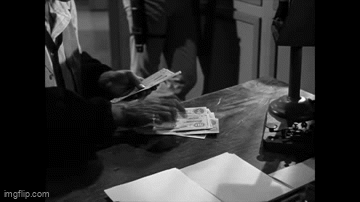
He smiled and all his teeth Were covered with tobacco stains

He said, "It don't do men no good To pray for peace and rain"
"Peace and rain is just a way to say prosperity
And buffalo chips is all it means to me"

I told him I was a poet I was lookin' for the truth
I do not care for horses Whiskey, women, or the loot
I said I was a writer My soul was all on fire
He looked at me And he said, "You are a liar"

"Son, it's faster horses
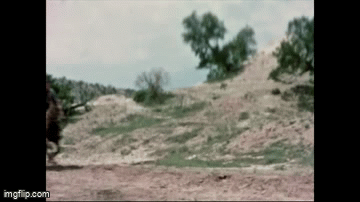
Younger women
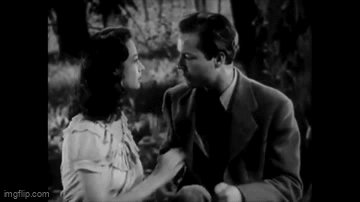
Older whiskey
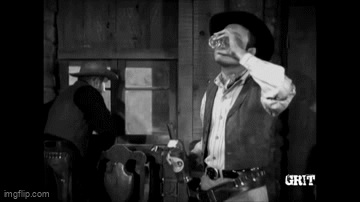
More money
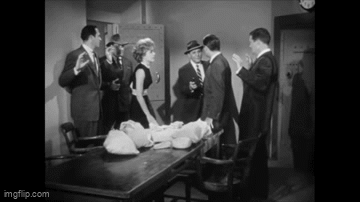
Well, I was disillusioned If I say the least
I grabbed him by the collar And I jerked him to his feet
There was somethin' cold And shiny laying by my head
So I started to believe The things he said

Well, my poet days're over
And I'm back to bein' me
As I enjoy the peace and comfort of reality
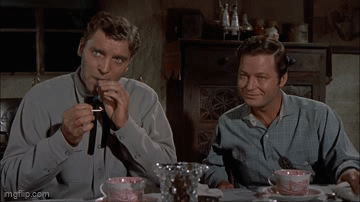
If my boy ever asks me What it is that I have learned
I think that I will readily affirm
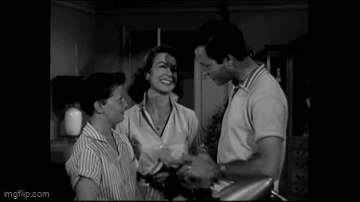
"Son, it's faster horses
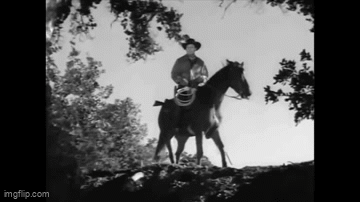
Younger women
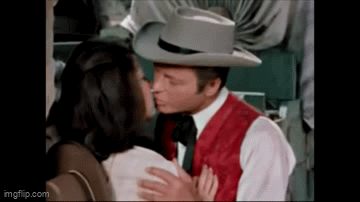
Older whiskey

More money"
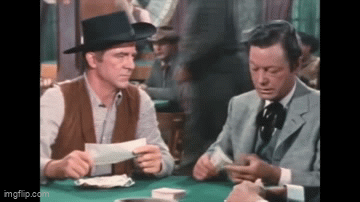
#deforest kelley#the world according to de's characters#tom t hall#de has a wonderful smile#fun fact#the only love interest older than de#was virginia grey (iris millar)#'course in real life carolyn was older than de#black spurs#stagecoach west#death valley days#you are there#bonaza#o henry#laramie#wanted dead or alive#rawhide#life of st paul#gunfight at comanche creek#fear in the night#calico bait#21 beacon#trackdown#gunfight at ok coral#science fiction theater#a man called shenandoah#apache uprising#town tamer#gunfight at ok corral#TAG ALL THE STUFF
45 notes
·
View notes
Text
nasa: we're going to shoot three rockets directly at the sun during the total eclipse. for study and research purposes.
me: oh cool
nasa: we have named the rockets apep. this stands for atmospheric perturbations [in the] eclipse path.
me: oh cool
nasa: apep is also the ancient egyptian deity of chaos and darkness, who ceaselessly seeks to extinguish the sun. we launch these rockets directly at the sun in the name of apep.
me: oh... cool?
76K notes
·
View notes
Text
"This fic was ai generated—" Cool, so lemme block you real quick
#the ethics are whack but more importantly you didn't even want to write it?? who is it even for?? not you? not me?#you didn't even have enough interest in the premise to take a crack at it?? then who cares?#please don't populate in my search results I'm looking for things that people wrote because they liked something#ao3
128K notes
·
View notes
Text
68K notes
·
View notes
Video
youtube
1:23 AM EST January 4, 2023:
Mono - "Yearning"
From the album You Are There
(March 15, 2006)
Last song scrobbled from iTunes at Last.fm
File under: Japanese Orchestral Post-rock
---
3 notes
·
View notes
Text
Hey all, you know how internet searches suck now? When the results are awful, full-of-AI, death-of-the-internet levels of bad?
Start appending date constraints to your searches - "before:2023".
My results have gone from 90% AI bullshit to ~60% usable - which frankly at this point is a huge improvement.
#information death of the internet etc#legit this has been SO SO helpful#shout out to mastodon infosec server for this one#before 2022 we did not really have the AI-content-farms because. the tech did not exist to the public.#and you can knock back the date if need be#obviously this does not FIX the problem but#me.txt
78K notes
·
View notes